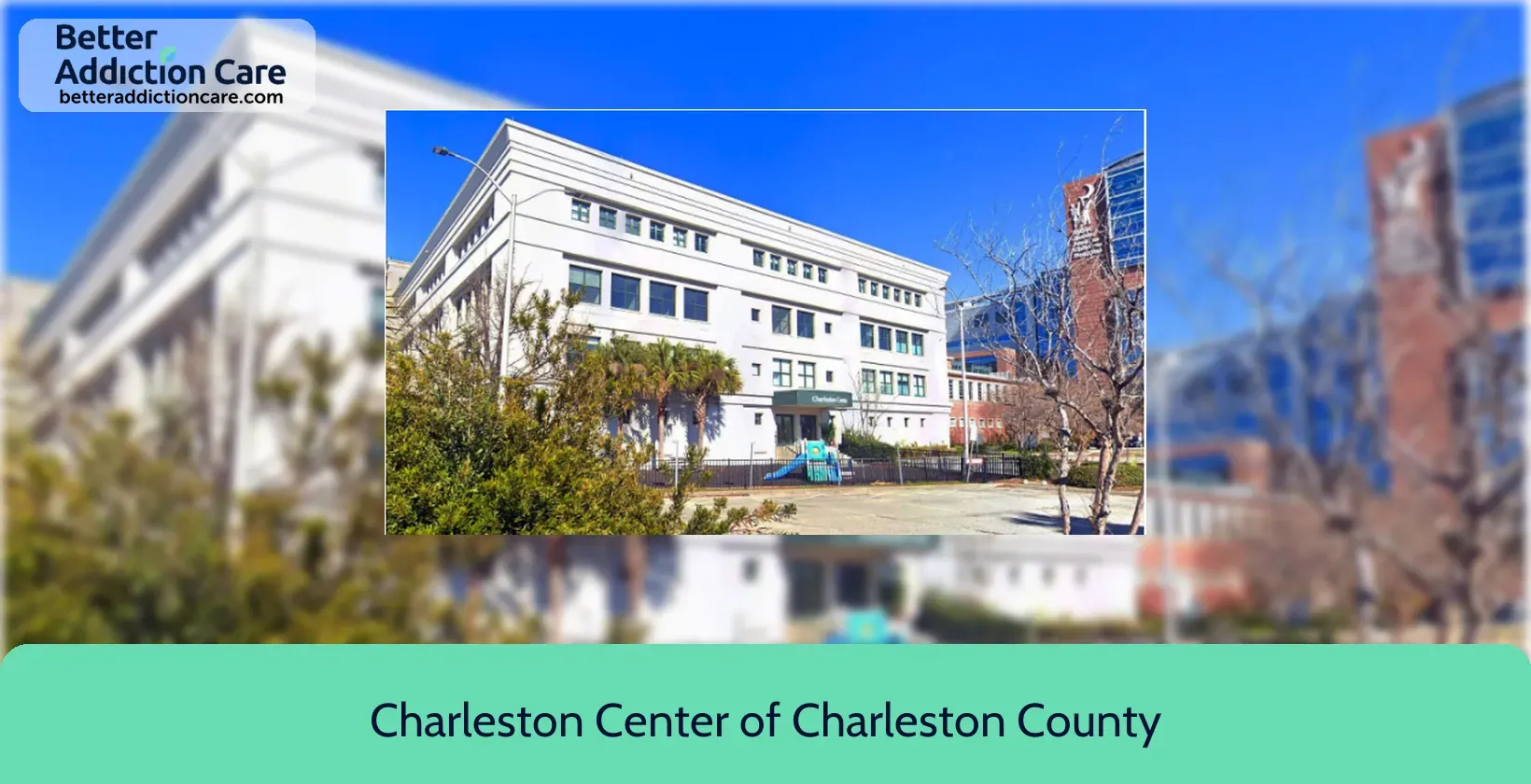Charleston Center of Charleston County
Overview
Situated in Charleston, South Carolina, Charleston Center is a comprehensive addiction treatment center that provides a variety of treatments to adults and teenagers. Inpatient treatment, outpatient programs, medically supervised detoxification, intervention services, and aftercare treatments are all offered by the clinic. Charleston Center also provides specific services for youth, young adults, those living with HIV/AIDS, people engaged in the judicial system, and people who co-occur with mental health illnesses and addiction.
Detoxification at Charleston Center is a well watched procedure that is supervised by doctors around-the-clock to guarantee client safety. FDA-approved drugs like Suboxone and methadone may be used to treat withdrawal symptoms and lower the chance of problems. Programs for detoxification usually last two to ten days, depending on the requirements of each person.
The inpatient program at the facility offers a quiet, comfortable setting where patients may concentrate entirely on their rehabilitation. In-depth, trauma-informed psychotherapy with an emphasis on the 12 Steps is the main focus of this program, which also includes individual, group, and family counseling sessions. In order to maintain long-term sobriety, clients also engage in the development of critical life skills including wellness, self-care, coping mechanisms, stress and anger management, and relapse prevention methods.
Charleston Center is dedicated to promoting long-term rehabilitation by providing a comprehensive continuum of treatment that changes to meet the clients' changing requirements. With day and evening classes available, the outpatient program gives more flexibility. Apart from continuous therapy and the enhancement of their recovery abilities, clients may get supplemental services that aim to ease the process of reintegrating into the community, family, and employment. These services might include referrals for social, mental health, and medical services as well as job counseling, peer coaching, and introduction into the 12 Step program.
Charleston Center is registered with SAMHSA and has received CARF accreditation. The clinic makes therapy accessible to individuals in need by accepting Medicaid, accepting payments in full, and providing financing alternatives.
Charleston Center of Charleston County at a Glance
Payment Options
- Cash or self-payment
- Medicaid
- Medicare
- State-financed health insurance plan other than Medicaid
- Private health insurance
Assessments
- Screening for tobacco use
- Comprehensive mental health assessment
- Comprehensive substance use assessment
- Interim services for clients
- Outreach to persons in the community
Age Groups
- Adolescents
- Seniors
- Adults
- Young adults
Ancillary Services
- Case management service
- Integrated primary care services
- Suicide prevention services
- Residential beds for client's children
- Specially designed program for DUI/DWI clients
Highlights About Charleston Center of Charleston County
7.80/10
With an overall rating of 7.80/10, this facility has following balanced range of services. Alcohol Rehabilitation: 8.00/10, Drug Rehab and Detox: 9.39/10, Insurance and Payments: 6.00/10, Treatment Options: 7.82/10.-
Drug Rehab and Detox 9.39
-
Alcohol Rehabilitation 8.00
-
Treatment Options 7.82
-
Insurance and Payments 6.00
Accreditations
State department of health:

State Licenses, issued by government agencies, authorize rehabilitation organizations to legally operate within designated geographical areas. The specific licenses required for operation are typically determined by both the nature of the rehabilitation program provided by the facility and its physical location.
Commission on Accreditation of Rehabilitation Facilities (CARF):

CARF accreditation is a prestigious recognition granted to rehabilitation and human service organizations. It signifies that an organization meets high-quality standards, having undergone a rigorous evaluation process. CARF accreditation boosts an organization's credibility and ensures top-notch care for individuals with disabilities, injuries, or healthcare needs.
Drug Enforcement Agency (DEA):
DEA accreditation refers to the process by which a law enforcement agency is recognized by the Drug Enforcement Agency (DEA) as having met specific training, operational, and resource requirements necessary to participate in DEA-led drug enforcement efforts. This accreditation allows the agency to perform DEA-related tasks such as conducting investigations, executing federal search warrants, and participating in joint task forces.
Treatment At Charleston Center of Charleston County
Treatment Conditions
- 24-Hour Clinical Care
- Alcoholism
- Mental health treatment
- Substance use treatment
- Co-occurring Disorders
Care Levels
- Outpatient
- Short-term residential
- Residential detoxification
- Outpatient detoxification
- Outpatient methadone/buprenorphine or naltrexone treatment
Treatment Modalities
- Cognitive behavioral therapy
- Telemedicine/telehealth therapy
- Substance use disorder counseling
- Trauma-related counseling
- Smoking/vaping/tobacco cessation counseling
Ancillary Services
Languages
- Sign language services for the deaf and hard of hearing
Additional Services
- Pharmacotherapies administered during treatment
- Mentoring/peer support
- Breathalyzer or blood alcohol testing
Special Programs
- Clients with co-occurring mental and substance use disorders
- Criminal justice (other than DUI/DWI)/Forensic clients
- Pregnant/postpartum women
- Clients with HIV or AIDS
- Clients who have experienced trauma
Contact Information
Read our Most Recent Article About Drug Addiction
DISCLAIMER: The facility name, logo and brand are the property and registered trademarks of Charleston Center of Charleston County, and are being used for identification and informational purposes only. Use of these names, logos and brands shall not imply endorsement. BetterAddictionCare.com is not affiliated with or sponsored by Charleston Center of Charleston County.









